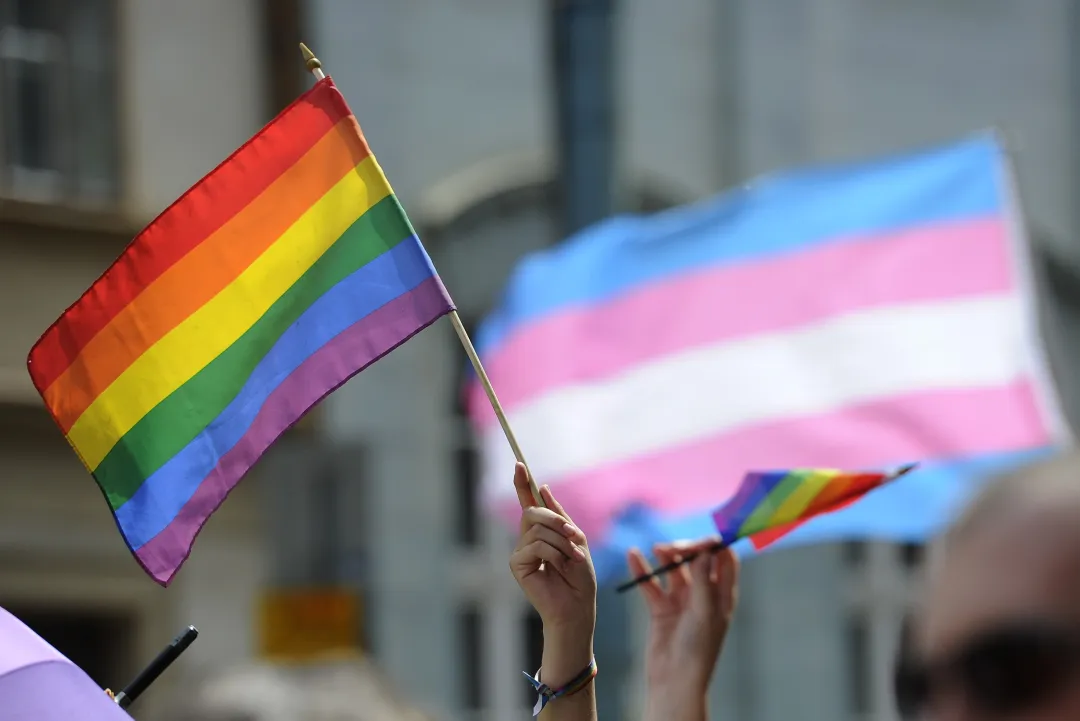By Charalampos Karouzos,
It’s far from breaking news to claim that the current governmental administration in the USA—one of the most influential countries in the current sociopolitical status quo—has taken another step towards a previously unforeseen direction. It’s not the trajectory of recent decisions the factor that one should focus on, but the consequences and ripple effects of these political actions on our everyday lives in an interconnected world.
The 400-page federal health report released in May 2025 intensified one of the most contentious debates: the treatment of gender dysphoria in adolescents. The document claims that hormonal and surgical interventions for minors lack solid scientific evidence and pose potential long-term harms, including infertility. In fact, it marks a dramatic policy reversal from previous federal stances and contradicts guidance from major U.S. medical associations, such as the American Academy of Pediatrics (AAP).
At the heart of the report is an abrupt shift in the approach to gender dysphoria. A simplified version of the DSM-5 definition describes gender dysphoria as the distress a person feels when their gender identity doesn’t match the sex they were assigned at birth—causing significant emotional or psychological discomfort that may lead individuals to seek social, psychological, or medical support to align their identity with their body and lived experience.
Rather than supporting access to puberty blockers and hormone therapies for transgender adolescents, the recent HHS document surprisingly recommends prioritizing psychotherapy. The review frames medical treatments as uncertain in benefit and emphasizes psychological care as the primary response. However, many LGBTQ+ advocacy groups and health experts have noted that the psychotherapy described in the report closely resembles conversion therapy—a discredited practice aimed at changing an individual’s gender identity or sexual orientation, widely condemned for its harmful effects.
The political context surrounding the report cannot be ignored. Commissioned by an executive order titled “Protecting Children from Chemical and Surgical Mutilation,” signed by President Trump in January 2025, the document was tasked with evaluating “best practices” for gender dysphoria in youth. Critics argue, however, that the administration had already drawn its conclusions, calling gender-affirming medical interventions a national shame. While the report’s tone is more measured than the order, its conclusions echo the same skepticism, drawing outrage and alarm from medical professionals, rights advocates, and affected families.

Gender-affirming medical care for adolescents—a well-established medical field—typically involves an evidence-based, stepwise approach. Puberty blockers, which are reversible, may be prescribed to delay the onset of puberty and provide time for further psychological exploration. For some adolescents, gender-affirming hormone therapy (such as testosterone or estrogen) may follow, and in rare, highly regulated cases, surgeries may be performed—though these are uncommon in individuals under 18. These interventions, when carried out under rigorous medical oversight, are endorsed by major medical organizations, including the American Medical Association, the Endocrine Society, and the AAP, as part of evidence-based care for gender dysphoria. It is fundamental to highlight that the recommendations of these medical societies arise from research and high-quality data—not from personal, societal, or cultural beliefs, contrary to Trump’s January 2025 executive order, which by definition reflects a one-sided decision.
“This report misrepresents the current medical consensus and fails to reflect the realities of pediatric care,” said Dr. Susan Kressly, president of the AAP. The organization has reaffirmed its support for gender-affirming care, citing studies that show such interventions significantly reduce depression, anxiety, and suicidality among transgender youth. Suicide rates among transgender adolescents remain disproportionately high, and many health professionals view access to affirming care as a life-saving measure.
Nonetheless, the debate over adolescent transition care is not unique to the United States. Several European countries, including Sweden, Finland, and the United Kingdom, have recently reevaluated their policies. England’s National Health Service, following a four-year independent review led by Dr. Hilary Cass, concluded that the evidence supporting puberty blockers and hormones in minors is “remarkably weak.” However, Dr. Cass emphasized that some young people do benefit from medical interventions and recommended continuing access within structured research settings to improve the data quality.
In the United States, the political battle over transgender healthcare has escalated beyond simple debates, as twenty-four states have enacted laws barring or severely restricting gender-affirming care for minors. The Trump administration has pushed further, threatening to defund hospitals that provide such care and barring openly transgender individuals from serving in the military. The report is thus viewed by many as part of a broader campaign to marginalize transgender Americans.
The medical and scientific communities remain divided on one issue: the strength of evidence. While long-term studies are indeed limited—due to the relative novelty and ethical constraints of such research—numerous peer-reviewed articles and clinical guidelines support the short- and medium-term efficacy of gender-affirming treatments. Moreover, many transgender adults report regret rates of less than 1%, comparable to or better than those of many other complex medical interventions.

An additional concern is the authorship and transparency of the HHS report. Unlike standard government medical reviews, it did not disclose the names of its contributors, raising questions about the qualifications and ideological leanings of the panel. According to the HHS, the team consisted of doctors, ethicists, and a methodologist chosen for their “commitment to scientific principles.” But without transparency, many justifiably fear that the conclusions are driven more by politics than by science.
However, the most pressing concern is how this report will influence real-world healthcare access. Already, the Centers for Medicare and Medicaid Services have advised state agencies not to use public funds for gender-transition care for minors. This development could disproportionately impact low-income families, further entrenching healthcare disparities. Casey Pick of The Trevor Project, an LGBTQ+ suicide prevention nonprofit, highlighted the dire consequences of such actions, stating: “To the extent that this report is challenging even the ability of a young person to identify as transgender, that is an ideological statement, not a medical one.”
Meanwhile, the American Psychiatric Association and the American Psychological Association continue—rightfully so—to support affirming models of care that respect young people’s gender identities. Indeed, they caution that delaying or denying care may exacerbate mental health struggles, leading to isolation, depression, and suicidality. Kellan Baker, director of the Whitman-Walker Institute, warned that the politicization of trans healthcare is eroding trust in medical institutions and setting dangerous precedents.
Unfortunately, the debate over access to evidence-based healthcare services that prevent human suffering—and save human lives—is far from over. It will soon reach the Supreme Court, where the debate will escalate into a legal battle. The focus must now shift from the political landscape back to the core of the issue, where a difficult but essential question lies: Who gets to decide the legitimacy of someone’s identity, and what role should the government play in that decision? The world awaits the Supreme’s court answer—an answer that, if driven by political gain rather than scientific evidence and human dignity, will cost lives.
References
- Federal Report Denounces Gender Treatments for Adolescents. The New York Times. Available here
- AAP Statement on HHS Report Treatment for Pediatric Gender Dysphoria. AAP. Available here
- Independent review of gender identity services for children and young people. The Cass Review. Available here
- You deserve a welcoming, loving world. The Trevor Project. Available here
- Puberty blockers, cross-sex hormones, and surgery related to gender dysphoria. CMS. Available here
- APA Home Page. APA. Available here




